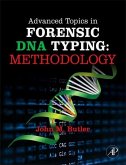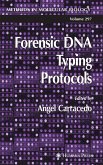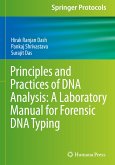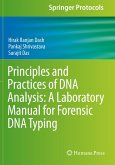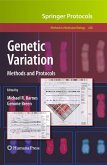This volume presents a series of protocols and methods, some of which are not widely used by researchers/practitioners, and will aid in the execution of different laboratory techniques. Forensic DNA Typing Protocols, Second Edition is arranged into a series of related chapters. Chapter 1-3 examines two different aspects of RNA analysis for body fluid identification. Chapters 4-7 focuses on the storage of biological materials and the extraction of DNA from hard tissues. Chapters 8-10 present methods for monitoring the quality of DNA extracts, and steps to aid in the purification of DNA. Chapters 11-16 talk about methods on non-standard markers, such as INDELs, Y chromosome STRs, and mitochondrial DNA. Detailed procedures and data analysis for phenotypes and ancestry are explored in Chapter 17-19. The last chapter (20) looks at the application of DNA typing to the identification of non-human material to species level. Written in the highly successful Methods in Molecular Biology series format, chapters include introductions to their respective topics, lists of the necessary materials and reagents, step-by-step, readily reproducible laboratory protocols, and tips on troubleshooting and avoiding known pitfalls.
Practical and thorough, Forensic DNA Typing Protocols, Second Edition, is a valuable resource for forensic specialists, researchers, and anyone interested in the field of forensic science.
Practical and thorough, Forensic DNA Typing Protocols, Second Edition, is a valuable resource for forensic specialists, researchers, and anyone interested in the field of forensic science.
"This is an instructional book that raises awareness of the technology available in genetic forensic sciences. ... The book is written in a way that is easy to understand for advanced professionals as well as beginners. Anyone wanting to understand the technology involved in forensic DNA analysis would benefit from this unique book. ... The value of this book lies in the simple and logical way it presents complex information in forensic medicine." (Luis F. Escobar, Doody's Book Reviews, November, 2016)



